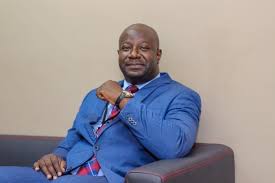The special parliamentary committee investigating the leaked tape involving plans to remove the Inspector General of Police (IGP) has recently faced internal disputes regarding the interpretation of the constitution and the validity of its report.
The committee’s chairman, Samuel Atta Akyea, has voiced strong criticisms of the committee’s findings and its vice chairman, James Agalga, for what he perceives as a flawed constitutional interpretation.
During a heated parliamentary debate, Chairman Samuel Atta Akyea challenged Vice Chairman James Agalga’s understanding of the committee’s powers under the constitution. He argued that the committee, operating with the powers akin to a High Court, had the authority to enforce laws more stringently than Agalga suggested.
“We shall have the powers, rights, and privileges of the High Court. So, what are you saying that we can’t commandeer law? …So, what are you saying you don’t have the power. That is why you messed up. You didn’t understand the Constitution.”
Hon. Samuel Atta Akyea, MP for Abuakwa South Constituency
The core of the debate centered on the committee’s report, which Hon. Atta Akyea described as “anemic” and lacking the necessary substance for any meaningful parliamentary action.
The report, which Hon. Atta Akyea did not sign, concluded that three senior police officers—COP Alex George Mensah, Supt. George Lysander Asare, and Supt. Emmanuel Eric Gyebi—had misconducted themselves. This misconduct deemed a major offense under police regulations, warrants sanctions according to the Police disciplinary procedure.
During the parliamentary debate, Hon. Atta Akyea urged his colleagues to reject the committee’s findings, emphasizing the report’s lack of thorough analysis and foundation of evidence. He passionately argued that the committee’s role is to delve deeply into matters, not merely act as a conveyor belt for unexamined conclusions.
“I want to submit with the greatest of respect that this report reduced Parliament and the good committee of Parliament to a conveyor belt that anything they drop on it should go.
“You do not just listen to people who come before a committee and that will bring you to a conclusion of the matter. You delve into the matters. A committee of Parliament is not a conveyor belt. They’re supposed to delve into this matter. And on that showing, this report is so anaemic.”
Hon. Samuel Atta Akyea, MP for Abuakwa South Constituency
Lack of Substantive Evidence

Hon. Atta Akyea further criticized the report for its lack of substance, making it insufficient for the plenary to make any informed decisions. He stressed the importance of a robust and evidence-based report to uphold any resolution made by Parliament.
“It lacks substance for plenary to find, with the greatest of respect any decision on it and to uphold this report,” Mr. Atta Akyea argued. He called on the house to reject the report, emphasizing that making a resolution based on such an anemic report would be ill-advised.
The controversy surrounding the committee’s report and its internal disputes underscore significant challenges in parliamentary processes and oversight functions.
The call for rejection of the report puts the future of the investigation into the leaked tape in a precarious position, potentially necessitating further inquiry or re-evaluation of the evidence and findings.
Hon. Atta Akyea’s strong stance against the report highlights the importance of thorough and evidence-based investigations in upholding the integrity of parliamentary actions and decisions. His criticism suggests a need for more rigorous analysis and deeper scrutiny in parliamentary committee processes to ensure that their findings and recommendations are robust and credible.
The debate over the committee’s report on the leaked tape involving plans to remove the IGP has revealed significant internal disagreements about constitutional interpretation and the thoroughness of the committee’s investigation.
Chairman Samuel Atta Akyea’s vehement critique and call for the rejection of the report emphasize the necessity for more comprehensive and substantiated findings in parliamentary proceedings. The outcome of this debate will likely have far-reaching implications for parliamentary oversight and the conduct of future investigations.
READ ALSO: Moody’s Eyes Upgrade for Ghana’s Credit Rating Following Successful Eurobond Exchange





















